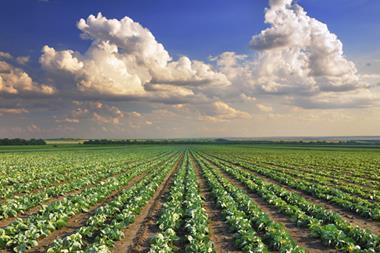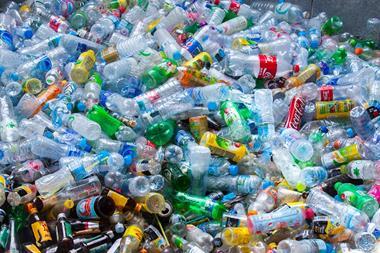Food security is one of the most significant long-term issues facing our industry. Just how will we produce enough to feed ourselves in the face of rapid population growth and climate change?
The government’s response is the Agri-Tech Strategy, launched last month. The £160m plan aims to overhaul Britain’s food production industry by bringing together science, farming and food production to develop a joined-up response. This initiative is welcome and I encourage food producers and retailers to engage with the strategy.
However, food waste is also a major factor in achieving food security. Research shows the average UK household throws away £500 worth of food every year. Consumer food waste makes up 50% of the £23bn worth of food and drink we waste annually. Shockingly, more than half of it could have been eaten.
Food is also being wasted before it even leaves the field. Challenging weather conditions in recent years have meant that prices and availability have fluctuated massively in recent years.
“Many consumers still hold negative perceptions of frozen food”
Unpredictable weather has led to crops ripening too early or too late to meet consumer demand and farmers are forced to dispose of perfectly good food. Recently, broccoli farmers were forced to throw away £20,000 worth of good-quality but unwanted product as July’s hot weather meant there was no demand.
When food is harvested, it doesn’t always reach the consumer. Roughly 40% of edible fruit and vegetables are turned away from retailers simply because of the way they look.
With the heightened challenges of food production and soaring demand, surely it is irresponsible for the UK to continue to waste significant amounts of food at almost every stage of production and consumption?
One easy win would be to do-away with irresponsible discounting. We can also educate consumers through initiatives such as the ‘Love Food Hate Waste’ campaign. However, I believe that frozen food can also play a key role.
Freezing food when crops are in abundance and at their peak means they can be stored without losing any nutrients. Farmers won’t have to dump unwanted, good-quality food simply because the consumer doesn’t want to eat it that week. ‘Ugly’ fruit and veg can be processed and frozen for consumption at a later date. Frozen food can also help consumers with portion control and preservation of uneaten food by home freezing further cuts waste.
The BFFF’s consumer marketing campaign is promoting frozen food with initiatives such as our Cool Cookery website. This has supported long-term growth in the volume and value of frozen food sold. The UK market is now worth £5.6bn following more than six years of value growth.
However, many consumers still hold unfounded negative perceptions of frozen food. This is where retailers and brands have a role to play in developing high-quality frozen products with real consumer appeal. A key foundation of our future food security could be simply getting consumers to love their freezers.
Brian Young is director general of the British Frozen Food Federation



















No comments yet